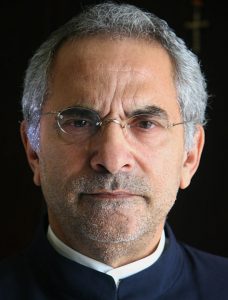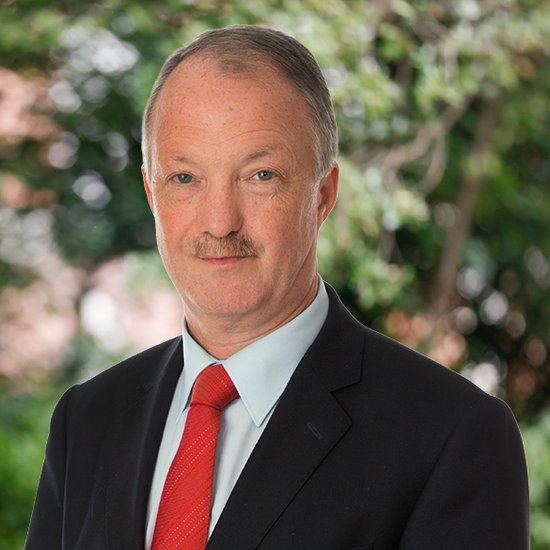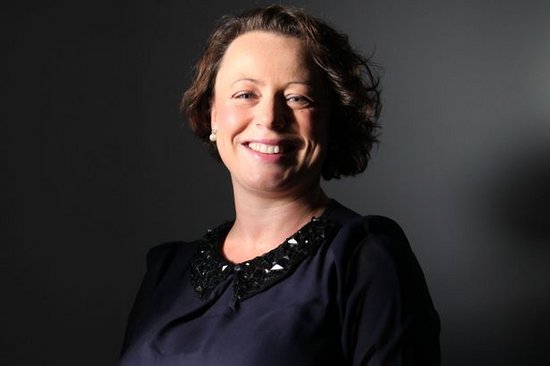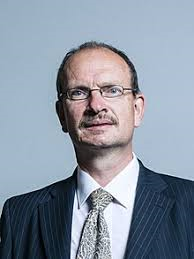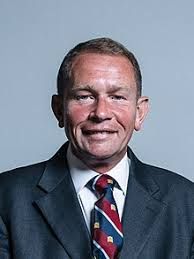TDs that support Simpol
The Simultaneous Policy (Simpol) is supported by an increasing number of Members of Parliament around the world. See below for details. If you are a TD or election candidate, we invite you to join them! Any questions? Click here.
To see what politicians around the world, and from across the party-political spectrum, are saying about Simpol, please click here.
Citizens! To make sure your preferred TDs/Candidates support Simpol, please sign up to the campaign now!
European Parliament candidates who have signed the Pledge
Ciaran Cuffe (Green Party)
Pledged: 22nd May 2019
Finian McGrath (Independent)
Pledged: 8th January 2016
Sinead Gibney (Social Democrats)
Pledged: 21st May 2024
Barry Andrews (Fianna Fail)
Pledged: 29th May 2024
Pauline O'Reilly (Green Party)
Pledged: 6th June 2024
Saoirse Mchugh (Independent)
Pledged: 7th June 2024
Billy Kelleher (Fianna Fail)
Pledged: 16th May 2024
Grace O'Sullivan (Green Party)
Pledged: 21st May 2024
TDs who have signed the Simpol Pledge
Malcolm Noonan TD (Green Party)
Pledged: 19th February 2016
Brendan Smith TD (Fianna Fail)
Pledged: 21st May 2019
Pearse Doherty TD (Sinn Fein)
Pledged: 22nd February 2016
Thomas Pringle TD (Independent)
Pledged: 4th February 2020
Sean Haughey TD (Fianna Fail)
Pledged: 7th January 2016
Eamon Ryan TD (Green Party)
Pledged: 18th January 2015
Mary Lou McDonald TD (Sinn Fein)
Pledged: 22nd February 2016
Joe O'Brien TD (Green Party)
Pledged: 13th January 2016
Louise O'Reilly TD (Sinn Fein)
Pledged: 21st February 2016
Sean Crowe TD (Sinn Fein)
Pledged: 14th January 2015
Francis Noel Duffy TD (Green Party)
Pledged: 21st January 2016
Cllr. Roderick O'Gorman TD (Green Party)
Pledged: 19th January 2016
Paul Donnelly TD (Sinn Fein)
Pledged: 25th February 2016
Carol Nolan TD (Independent)
Pledged: 25th February 2016
Brian Leddin TD (Green Party)
Pledged: 1st February 2020
Robert Troy TD (Fianna Fail)
Pledged: 21st February 2016
Darren O'Rourke TD (Sinn Fein)
Pledged: 7th February 2020
Jackie Cahill TD (Fianna Fail)
Pledged: 7th Febraury 2020
Marc O'Cathasaigh TD (Green Party)
Pledged: 1st February 2020
MPs Worldwide who have signed the Pledge
Fernando A. Iglesias. Diputado de la Nacion MC por la C.A. de Buenos Aires.
House of Representatives:
| Name | Party | Electorate | Date Pledged |
|---|---|---|---|
| Steve Georganas | ALP | Adelaide | 16.5.19 |
| Julie Collins | ALP | Franklin | 17.6.16 |
| Anne Stanley | ALP | Werriwa | 15.6.16 |
| Name | Party | Date Pledged |
| Susanne Zimmer MP | Independent | 21.9.20 |
| Uffe Elbaek MP | Independent Greens | 25.10.20 |
| Country | Constituency | Name | Party | Date Pledged |
|---|---|---|---|---|
| Ireland | Dublin | Ciaran Cuffe | Green | 22.5.19 |
| Germany | - | Jutta Paulus | Bundnis 90/Die Gruenen | 12.5.19 |
| Luxembourg | - | Tilly Metz | Green | 4.1.21 |
| Nom | Parti | Circonscription | Signé le |
| Jean-Charles Larsonneur | Majorité présidentielle | 29-02 Finistère 2 | 14 Juin 2022 |
| Name | Area | Party | Date Pledged |
|---|---|---|---|
| Sanae Abdi | Cologne I | SPD | 19.8.21 |
| Adis Ahmetovic | Hannover-Stadt I | SPD | 16.9.21 |
| Tobias Bacherle | Böblingen | Bündnis90/DieGrünen | 13.9.21 |
| Sören Bartol | Marburg | SPD | 12.9.17 |
| Holger Becker | Jena-Sõmmerda-Weimarer Land I | SPD | 15.8.21 |
| Leni Breymaier | Aalen-Heidenheim | SPD | 15.7.21 |
| Deborah Düring | Frankfurt am Main I | Bündnis90/DieGrünen | 5.9.21 |
| Dr. Jonas Geissler | Coburg-Kronach | CSU | 16.8.21 |
| Dirk Heidenblut | Essen II | SPD | 12.7.21 |
| Bernhard Herrmann | Chemnitzer Umland-Erzgebirgskreis II | Bündnis90/DieGrünen | 5.9.21 |
| Bruno Hönel | Lübeck | Bündnis90/DieGrünen | 16.8.21 |
| Dr. Fransziska Kersten | Börde/Jerichower Land | SPD | 5.9.21 |
| Sven-Christian Kindler | Stadt Hannover II | Bündnis90/DieGrünen | 22.8.17 |
| Tim Klüssendorf | Lübeck | SPD | 6.9.21 |
| Anette Kramme | Bayreuth | SPD | 18.9.17 |
| Christian Kühn | Tübingen | Bündnis90/DieGrünen | 12.9.17 |
| Helge Lindh | Wuppertal I | SPD | 15.7.21 |
| Anna Lührmann | Rheingau-Taunus-Limburg | Bündnis90/DieGrünen | 27.8.21 |
| Parsa Marvi | Karlsruhe-Stadt | SPD | 15.8.21 |
| Susanne Menge | Oldenburg-Ammerland | Bündnis90/DieGrünen | 6.9.21 |
| Dr. Matthias Miersch | Hannover Land II | SPD | 28.8.17 |
| Detlef Müller | Chemnitz | SPD | 4.9.21 |
| Brian Nickholz | Recklinghausen II | SPD | 16.8.21 |
| Ye-one Rhie | Aachen I | SPD | 6.9.21 |
| Sönke Rix | Rendsburg-Eckernförde | SPD | 13.9.21 |
| Dr. Martin Rosemann | Tübingen | SPD | 14.7.21 |
| Tina Rudolph | Eisenach-Wartburgkreis-Unstrut-Hainich-Kreis | SPD | 6.9.21 |
| Kordula Schulz-Asche | Main-Taunus | Bündnis 90/Die Grünen | 1.7.21 |
| Svenja Schulze | Münster | SPD | 26.8.21 |
| Dr. Lena Seitzl | Konstanz | SPD | 18.8.21 |
| Dr. Anne-Monika Spallek | Coesfeld-Steinfurt | Bündnis90/DieGrünen | 15.8.21 |
| Nina Stahr | Berlin Steglitz-Zehlendorf | Bündnis90/DieGrünen | 5.9.21 |
| Ralf Stegner | Pinneberg | SPD | 9.9.21 |
| Mathias Stein | Kiel | SPD | 24.8.21 |
| Derya Türk-Nachbaur | Schwarzwald-Baar | SPD | 16.8.21 |
| Johannes Wagner | Coburg | Bündnis90/DieGrünen | 19.8.21 |
| Carmen Wegge | Starnberg Landsberg | SPD | 23.8.21 |
| Lena Werner | Bitburg | SPD | 16.8.21 |
| Bernd Westphal | Hildesheim | SPD | 4.9.21 |
| Gülistan Yüksel | Mönchengladbach | SPD | 30.6.21 |
| Politische Parteien die Simpol unterstuezen |
| Eine-Welt-Partei |
| Feministische Partei DIE FRAUEN |
| Constituency | Name | Party | Date Pledged |
|---|---|---|---|
| Cork N.C. | Jonathan O'Brien | Sinn Féin | 23.2.16 |
| Donegal | Pearse Doherty | Sinn Féin | 22.2.16 |
| Dublin Bay N. | Seán Haughey | Fianna Fáil | 7.1.16 |
| Finian McGrath | Independent | 8.1.16 | |
| Thomas Broughan | Independent | 21.1.16 | |
| Dublin Bay S. | Eamon Ryan | Greens | 18.1.16 |
| Dublin Central | Mary Lou McDonald | Sinn Féin | 22.2.16 |
| Dublin Fingal | Louise O'Reilly | Sinn Féin | 21.2.16 |
| Dublin S.W. | Sean Crowe | Sinn Féin | 14.1.16 |
| Dublin S.W. | Katherine Zappone | Independent | 8.2.16 |
| Kerry | Martin Ferris | Sinn Féin | 22.2.16 |
| Longford-Westmeath | Robert Troy | Fianna Fáil | 21.2.16 |
| Louth | Gerry Adams | Sinn Féin | 22.2.16 |
| Offaly | Carol Nolan | Sinn Féin | 25.2.16 |
| Name | Party | Area | Pledged |
| Myriam Cecchetti | Déi Lenk | Süden | 29.6.23 |
| Nathalie Oberweis | Déi Lenk | Centre | 29.6.23 |
See all 100+ pledged Members of Parliament on our UK website.
FAQ for politicians
Simpol offers an alternative, yet complementary, approach to solving global problems. Current efforts at international treaty-making sponsored by the United Nations are revealing themselves to be inadequate and prone to failure. That's why Simpol is fast gathering increasing interest and support.
Moreover, in today's globalised economy where capital moves instantly across national borders and nations must compete to attract inward investment and jobs, the feasible parameters of government policy have become very restricted indeed. In practice, only market- and business-friendly policies are now permissible, so marginalising the interests of society and the environment. But it is becoming increasingly clear that this is a vicious circle that no nation can win, and all must ultimately lose.
Simpol is unique in offerring a transnational political process that allows everyone - citizens, MPs, political parties and governments - to participate in. Citizens in particular are signing on to the campaign, so making it in the growing electoral interests of politicians and parties to support the campaign.
To confirm YOUR support, please sign the Simpol Pledge. If you would like your party to consider making Simpol a part of its official policy, please download a Party Resolution Form.
UN-sponsored international negotiations, for example on carbon emissions, have two major and potentially fatal draw-backs:
- They deal with only one issue at a time. This is problematic because, on any particular issue (eg. carbon emissions), there will always be winners and losers. And because only one issue is on the table, there is no way for losers to be compensated, so virtually assuring their non-cooperation.
- When it comes to global policy, the people have no say and effectively no sway on their governments. There is consequently no electoral pressure on governments - no direct political incentive for them to cooperate with one another.
Simpol solves both these problems. Firstly, by offering a multi-issue policy framework where nations that may lose out on one issue can gain on another, Simpol uniquely offers a far better prospect of getting all nations to co-operate. Moreover, by allowing citizens to use their votes to incentivise politicians and governments, Simpol may ultimately offer a more likely means of solving today's global problems. But whether it does or not, Simpol can be supported without compromising your party's policy or the government's position in current international negotiations. Simpol works in parallel, and so is entirely complementary to those efforts.
So please sign the Simpol Pledge and lend YOUR support to Simpol.
Simpol's policy content will, when the time comes, be developed by citizens via processes to be hosted by each national Simpol organisation, and overseen by the International Simultaneous Policy Organisation. These processes would be launched only once sufficient support in principle for Simpol was forthcoming from politicians around the world.
Should that point be reached, these policy development processes will allow supporters in each country to design, propose and refine Simpol's policies. For this, they may draw on proposals from NGOs, politicians, think-tanks or on those provided by their own chosen experts.
This would be followed by an international negotiation to arrive at a final set of measures to be implemented by nations globally and simultaneously. Prior to implementation, citizens in democratic countries would be invited to confirm their agreement.
In that way Simpol's policy content remains:
- Flexible: The policies remain open to revision at all times until the point of implementation so ensuring they are fully appropriate for then-prevailing world conditions;
- Democratic: Supporters joining the campaign after the launch of the policy development process would still have the opportunity to contribute until final policies had been internationally negotiated and agreed.
Simpol is also globally inclusive. Not only will it allow citizens in democratic countries to participate in developing policy, the governments of non-democratic nations would, at the appropriate point, be invited to participate in international negotiations to reach a final agreement.
Because policy development would only commence once sufficient support from politicians were forthcoming, politicians who sign the Simpol Pledge at this stage support to the campaign only in principle. Should the process for developing Simpol's policy content eventually commence and result in any international agreement, and had you already signed the Pledge, you would be invited to re-confirm your support prior to voting in parliament to implement those policies.
Thus, not only is your support for Simpol given only in principle at this stage, Simpol's policy development, when it occurs, would remain open, democratic and flexible at all times until implementation and you would be asked, at that point, to re-confirm your support. This means you can sign the Pledge without risk, and without coming into any conflict with your party's present policies.
To ensure Simpol only includes policies that genuinely require simultaneous implementation, the process incorporates a unique criterion for screening out national policies. In this way it achieves a healthy subsidiarity between the global level and the national level, so safe-guarding national sovereignty. This criterion is expressed in the following question:
Would the unilateral implementation of the policy by a single nation (or by a restricted group of nations) be likely to cause it a significant competitive disadvantage?
If the answer is:
- No: the policy does not qualify for inclusion in Simpol because it could be implemented by any nation (or restricted group of nations) alone.
- Yes: the policy qualifies for inclusion in Simpol.
In this way, only appropriate policies are included while the national sovereignty of all nations is maintained. By signing the Simpol Pledge you are therefore promoting your nation's interest to cooperate to solve global problems while still protecting its right to self-determination on all issues that have no international impact.
No, for several reasons:
- The development of Simpol's global policies remains an on-going work-in-progress at all times until Simpol's implementation. As such its policies, although emerging in outline, remain to be fully defined and are likely to remain flexible until shortly before implementation. As such, for the foreseeable future, signing the Pledge remains only a commitment in principle; a confirmation of your support only in principle for Simpol and the process it has set in train.
- Since Simpol's policies remain to be fully defined, there can be no conflict with your party's current international policies. Both you or your party as a whole can support Simpol in parallel to your present policies.
- Simpol's condition of simultaneous international implementation allows politicians to support important global policies but only on condition that they are implemented by all or sufficient nations together. So, not only can you support such policies without any risk to national economic competitiveness, you can be seen to advocate them while making clear the condition for your support; that condition being, that the policy is to be implemented simultaneously, only when all or sufficient nations also do so. If all nations move together, we all win.
So, carry on supporting your party, but support Simpol too. Doing so is a risk-free, win-win proposition! Please confirm your support today by signing the Simpol Pledge.
There are many advantages:
- Credibility: By supporting Simpol, you are identifying yourself as a politician who supports a practical solution to global problems. Supporting Simpol allows you to go beyond the confines of party policy to reach out to the growing body of voters who increasingly care about global issues but who have become disillusioned with party politics.
- Extra Votes: By supporting Simpol, you make yourself eligible to receive the votes of citizens who support the campaign. They are committed to giving strong preference to candidates who have signed the Pledge, to the probable exclusion of those who haven't. With support for Simpol growing, it makes sense to make sure that you've signed the Pledge.
- Leading the Way: By supporting Simpol, you are joining a growing body of parliamentarians, statesmen, economists and thought leaders who realise that the world needs a way out of its present dilemma and that neither the UN nor traditional party politics, important though they are, can deliver on global challenges. You came into politics to make a positive difference to the world. Supporting Simpol offers you a complementary way to do that.
So please sign the Simpol Pledge online now.
Yes. But why would you want to?
- Since Simpol's policies remain to be developed and wouldn't be implemented until all or sufficient nations support the campaign, they remain only a potential. Your or your party's support for Simpol at this stage therefore means supporting Simpol only in principle. So there is no risk and there can be no conflict with your party's policies.
- If you sign the Pledge, your national Simpol organisation will normally publicise that Pledge to all its supporters, so indicating who they should give strong voting preference to at the next election. But if you decided to cancel your Pledge, we would, of course, publicise that too. So, to cancel your Pledge makes no sense. It would only invite our growing block of supporters not to vote for you.
- Bear in mind, too, that one or more of your political competitors in your constituency may sign the Pledge. So, if you were to cancel your Pledge, you would only be putting yourself at a competitive disadvantage.
In short, you can of course revoke your Pledge at any time if you wish, but there's really no reason to, and every reason not to. So please show yourself to be part of the global political solution by signing the Simpol Pledge online now.
Non-democratic countries are unlikely to be the first to support Simpol. But as democratic countries are gradually driven to sign the Pledge, the incentive and pressure on non-democratic countries to join the process will increase.
The governments of non-democratic countries can sign the Pledge at any time and pass it into law. Since no electoral pressure can be applied in such countries, what is their incentive for signing?
- No country, whether democratic or not, has anything to lose by joining the process and everything to gain. Simpol's win-win formula of simultaneous implementation and multi-issue policy packages has the potential to align every nation's self-interest with the global common interest.
- Many non-democratic countries are relatively poor, so they would have much to gain from the kind of policies likely to be included in Simpol. Apart from solving problems like climate change, these would likely raise considerable revenues, a portion of which could be distributed to such countries on a debt-free basis.
- Many non-democratic countries are frustrated at the international community’s present lack of action and their own lack of influence. Many would want to sign the Pledge to set an example to the richer, more powerful countries.
Ultimately all countries, whether democratic or not, need solutions to global problems. As these problems worsen and become critical, the pressure and incentive on all nations to join the process will only increase.
Political parties may officially support Simpol by passing a resolution at their annual party conference (or in whatever forum is legally charged with policy making). Please download the template resolution in support of Simpol for consideration by your party.
For more background on why supporting Simpol makes political sense for your party, please contact us requesting our Political Parties Prospectus.

What politicians are saying about Simpol

The late Anthony Wedgewood Benn
Former Labour Member of Parliament, UK
"Simultaneous Policy is very stimulating... by substituting internationalism for globalisation, cooperation for competition, humanity for markets, and wisdom for materialism, you have unlocked a powerhouse for good."

Svend Robinson
Former Member of Parliament, Canada
"Simultaneous Policy is indeed a fascinating and important contribution to the global movement to construct creative alternatives to our current system of international relations. I am particularly struck by the Policy's direct answers to the fundamental problems of competitive global relations.”


